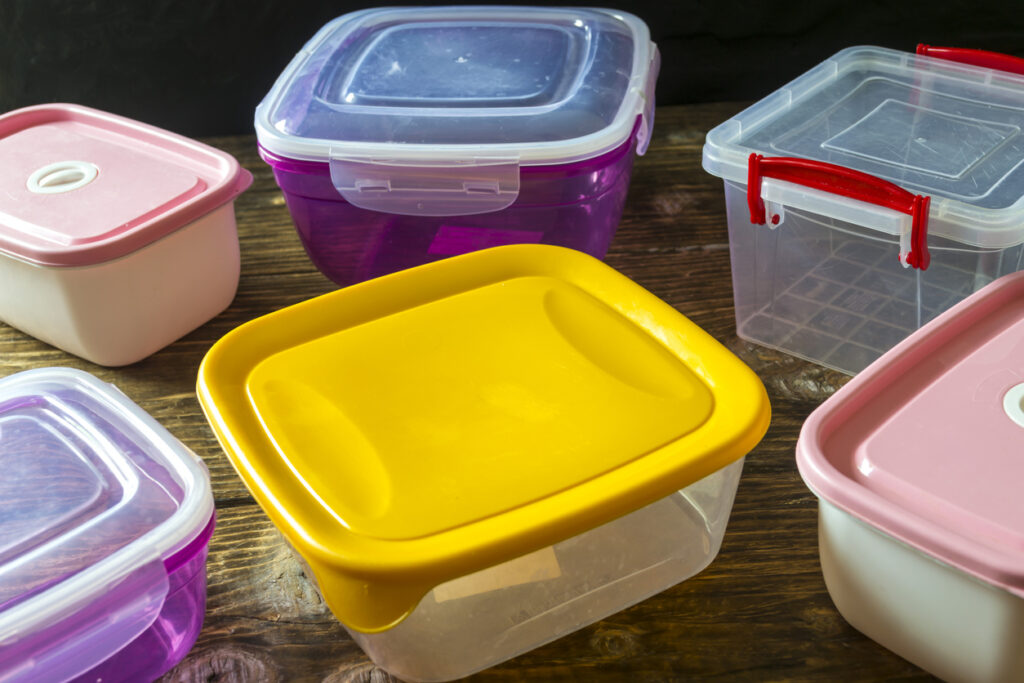You never wasted anything, but you learned to save everything.

The way you fold plastic bags, repurpose empty jars, or hesitate to throw out a perfectly good box might not seem unusual—until someone younger gives you a look that says, “Why on Earth are you keeping that?” You might not even realize it, but some of your most ingrained habits were shaped by parents who lived through the Great Depression. Their values became part of your daily life, subtly passed down through actions rather than lectures.
Growing up around people who endured real scarcity instills a particular lens through which the world is viewed. If any of the following signs ring familiar, there’s a good chance your worldview was molded by Depression-era wisdom that never quite left your side.
1. You save everything—just in case.

You have a drawer, box, or cabinet filled with twist ties, rubber bands, and maybe even bread clips. Not because you need them now, but because they “might come in handy someday.” This isn’t about being a packrat—it’s a deeply ingrained habit tied to the belief that waste is almost immoral. If you’ve ever rinsed out a ziplock bag to reuse or kept wrapping paper for another holiday, you’ve probably internalized the Depression-era ethic of saving rather than discarding.
People who lived through the Depression reused everything because they had to. When you’re raised by someone who lived that way, it becomes normal to you too, as mentioned by HubPages. You might feel a little weird when you see someone toss out something still usable, or you might feel uneasy replacing things that still technically work. That cautious mindset doesn’t come from frugality alone—it comes from survival instincts passed down like heirlooms.
2. You always finish the food on your plate.

Wasting food wasn’t just frowned upon in your house—it felt wrong. Maybe you grew up hearing, “There are starving children in the world,” or maybe your parents served you leftovers so many times you stopped asking what night it was originally cooked. You learned to scrape every last bit out of the jar and to eat even when you weren’t hungry—because wasting food wasn’t an option.
This goes beyond frugality. It’s about a respect for resources that were hard-won. If your parents lived through food shortages, they knew what true hunger felt like, as reported by Iowa State University Digital Repository. That experience shaped how they treated every morsel—and they passed that reverence to you. You may still feel a twinge of guilt tossing expired yogurt or leaving a crust uneaten. That’s not you being overly frugal—that’s legacy.
3. You have a strong distrust of debt.

You might hate using credit cards or avoid loans like the plague, even when they make logical sense. If you were raised by Depression-era parents, you likely heard stories of people losing everything when banks collapsed or jobs vanished. That kind of trauma creates deep-seated skepticism toward financial institutions and borrowing money in general.
Even if your income is stable, you might feel more secure with a stockpile of cash under the mattress than a high credit score, according to the National Institute of Health. You may associate owing money with danger, not opportunity. This isn’t necessarily bad—it can lead to financial caution and savings discipline. But it can also make you miss out on practical investments, simply because you’ve absorbed a belief that debt is inherently risky.
4. You see luxury as unnecessary—maybe even suspicious.

If someone buys an expensive purse or splurges on a fancy vacation, you might instinctively question their judgment. When you were raised by people who prized modesty and functionality, flashy displays of wealth feel foreign, if not flat-out irresponsible. You might indulge occasionally, but a small voice always reminds you to keep things practical and low-key.
This attitude doesn’t stem from jealousy. It comes from a value system built during hard times when extravagance was equated with risk or foolishness. You were taught that you don’t need much to be happy and that real wealth is having what you need—not showing off what you want. Even if you can afford more now, that Depression-era shadow makes you pause before splurging.
5. You know how to make things last.

Whether it’s sewing up a tear in your pants, fixing a leaky faucet yourself, or using duct tape as a miracle cure, you’ve got a built-in instinct to stretch the lifespan of everything you own. The idea of replacing something without trying to fix it first feels almost wasteful. You might even feel proud when someone says, “I can’t believe you still have that!”
This knack for repair isn’t just a skill—it’s a mindset. When your parents lived with very little, they made every possession count. That survival approach became your inheritance. You were likely encouraged to be handy, creative, and grateful for what you had. In a world where replacement is often faster than repair, you stand out as someone who honors what still works.
6. You feel guilty spending money on yourself.

Even when you have enough, there’s a nagging discomfort that creeps in when you buy something purely for your own enjoyment. Maybe you hesitate at the checkout, feel the need to justify a small splurge, or end up returning things you don’t “really need.” That guilt is likely not yours alone—it was modeled for you by people who prioritized needs over wants every single day.
Depression-era parents didn’t have the luxury of self-indulgence. Survival meant sacrifice, and self-care wasn’t in their vocabulary. Growing up in that environment, you may have learned that buying for yourself is selfish unless it serves a purpose. Even today, that whisper of frugality tugs at you, questioning every non-essential purchase as if the Great Depression could reappear tomorrow.
7. You keep sentimental items that others see as junk.

That chipped mug from your childhood, the worn-out teddy bear, or your parent’s rusted tools—they might all be stashed in your closet or garage. These aren’t just objects to you. They represent history, resilience, and emotional roots that still matter. You grew up watching your parents treat belongings with reverence because they had so few.
To them, things weren’t disposable—they were part of their story. And now, those values live on in your tendency to preserve the seemingly insignificant. It’s not hoarding. It’s honoring the past. Even if others don’t understand why you keep a broken item, you feel a quiet obligation to protect it. That deep connection to physical mementos is a hallmark of a Depression-era legacy.
8. You default to doing things yourself instead of hiring help.

If something breaks, your first instinct is to fix it—not to call a pro. You probably clean your own gutters, change your own oil, or attempt home repairs even if they end in frustration. It’s not just thrift—it’s a sense of pride and self-sufficiency you absorbed from people who didn’t have the luxury of hiring others.
Your parents lived in a time when every dollar mattered and labor was shared among family members. They taught you that independence wasn’t just about money—it was about survival. Doing things yourself feels right. It gives you control, saves cash, and validates your capabilities. Even when you can afford help, you may hesitate—because inside, there’s a voice saying, “You should be able to handle this on your own.”
9. You reuse foil, jars, and containers out of instinct.

You might have a whole drawer of neatly folded foil or an impressive collection of takeout containers “just in case.” You wash out peanut butter jars, remove labels, and save them like they’re currency. To some, it’s quirky. To you, it’s second nature. That’s not just being frugal—it’s the influence of people who believed throwing something useful away was borderline criminal.
Your parents didn’t waste resources. If something could serve another purpose, it was reused. This wasn’t just economic—it was ethical. You probably never questioned it as a child, and now you find yourself doing the same. Even when modern packaging is “disposable,” you feel a tug of guilt tossing something with potential. It’s an unspoken tribute to the value of everything.
10. You associate security with stockpiling essentials.

A pantry packed with canned goods, paper towels, or cleaning supplies brings you peace. You might not even notice you’re stockpiling until someone else points it out. It’s not about hoarding—it’s about being prepared. Your parents knew what it meant to go without, and their stories likely made a deep impression on your sense of safety.
That fear of not having enough lingers in subtle ways. You may buy extras when things go on sale or keep backups “just in case.” This doesn’t mean you expect disaster—it means you’ve internalized the belief that comfort comes from readiness. The Depression-era mindset wasn’t about luxury. It was about surviving winter, layoffs, or the unknown. And for you, full shelves mean peace of mind.
11. You’re resourceful in ways others find impressive—or odd.

You can fix a broken zipper, patch a hole, or cook a decent meal from what’s left in the fridge. Friends may joke about your “MacGyver” skills or call you thrifty, but you don’t see it that way. You just learned how to make do with what’s available. Creativity and necessity went hand in hand in your household, thanks to your parents’ influence.
You didn’t grow up tossing things out and starting over. You watched people problem-solve with minimal tools and maximum ingenuity. That rubbed off. Now, when something goes wrong, your instinct is to adapt—not replace. Whether it’s fashioning a tool from odds and ends or transforming leftovers into dinner, your resourcefulness isn’t just practical—it’s part of your identity.
12. You’re cautious with money, even when things are stable.

Even when you’re doing fine financially, you likely hesitate before making major purchases or big changes. You might obsessively research options, wait for sales, or question every upgrade. This isn’t just budgeting—it’s a kind of financial PTSD passed down through generations. You were taught to expect the worst, plan for it, and save for a rainy day—even if the sun’s been shining for years.
Your parents knew how fast security could vanish. That shaped their spending and, by extension, yours. You learned to value savings over flash, stability over indulgence. That caution might frustrate more free-spirited spenders in your life, but it’s helped you avoid debt, stay grounded, and appreciate what you already have.
13. You feel a quiet pride in being “low-maintenance.”

You probably don’t demand the newest gadgets or insist on luxury experiences. You’re content with a simple meal, a well-worn sweater, or a reliable old car. People might describe you as humble or no-fuss. But what they don’t realize is that being raised by Depression-era parents taught you that character matters more than comfort, and strength is found in simplicity.
You learned early that extravagance doesn’t equal happiness. Instead, you value functionality, gratitude, and self-control. Being “low-maintenance” isn’t about denying yourself—it’s about not needing much to feel whole. That outlook might clash with today’s consumer culture, but it’s a testament to your upbringing. You know that joy can be found in quiet moments and the things that last.
14. You have an unshakable work ethic that borders on stubborn.

You show up, follow through, and stay until the job is done—even when no one’s watching. You were likely raised to believe that hard work is its own reward and that anything less than your best is unacceptable. Your parents probably didn’t talk about self-care—they modeled endurance, resilience, and quiet grit.
This ingrained work ethic can be a gift and a burden. It makes you dependable and strong—but it can also make it hard to rest, ask for help, or accept praise. You may equate productivity with worth, often pushing yourself harder than necessary. That belief didn’t come from nowhere. It came from people who survived tough times through sheer will—and who taught you to do the same.
